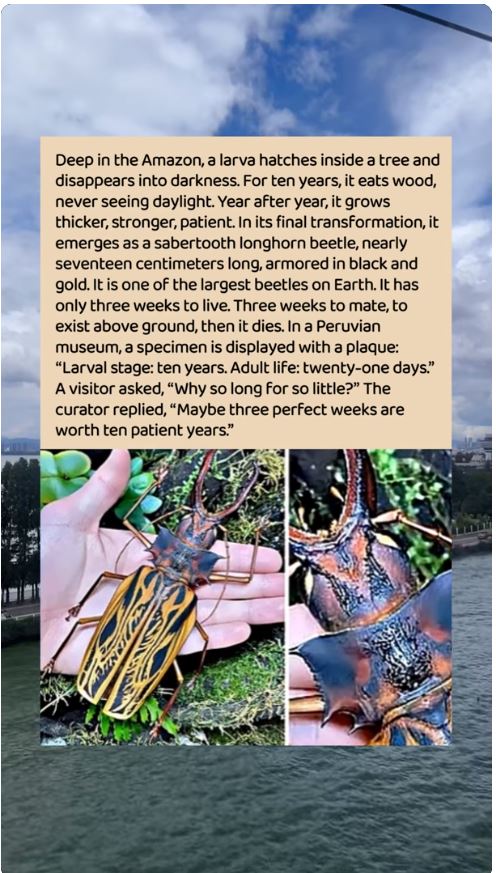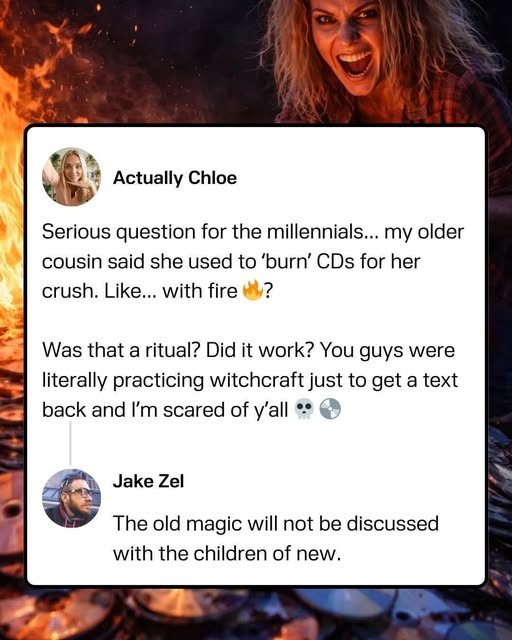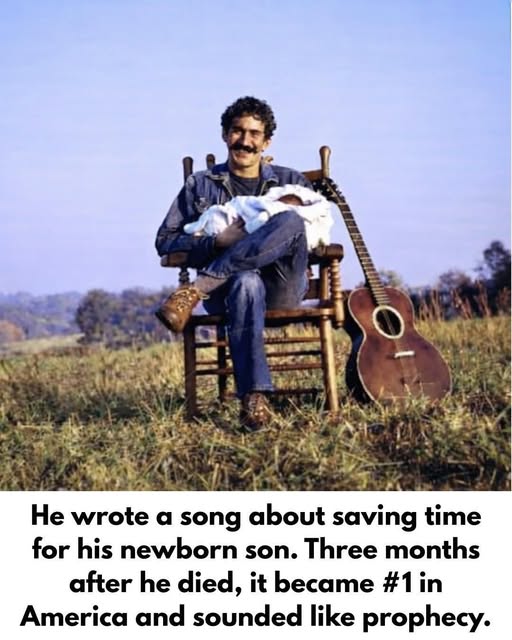
From An Ad On Facebook
Silver isn’t precious because it’s rare.
Or beautiful.
Or even valuable as currency.
Ancient civilizations from Egypt to China prized silver for one specific reason modern medicine refuses to acknowledge…
It healed wounds nothing else could touch.
For 5,000 years, every major civilization on Earth treated silver like it had supernatural healing powers.
Ancient Egyptians stored water in silver vessels and noticed it stayed fresh for months.
Greek physicians wrapped wounds in silver-lined cloth.
Chinese medicine used silver needles believing they “balanced the body’s energy.”
Medieval royalty ate with silver utensils and drank from silver cups… not for status, but because they genuinely lived longer than everyone else.
Nobody understood WHY silver worked.
They just knew it did.
Fast forward to the 1800s.
Doctors started running experiments.
They published findings in medical journals showing silver prevented infections, accelerated wound healing, and stopped inflammation nothing else could touch.
By the early 1900s, silver solutions were standard in every hospital.
Surgeons used it.
Burn units used it.
Maternity wards used it.
One doctor wrote in 1919:
“Silver has saved more lives in this hospital than any drug we possess. Its ability to prevent infection is unmatched.”
Then suddenly… the research stopped.
Not because silver stopped working.
Because pharmaceutical companies realized they couldn’t patent a 5,000-year-old metal.
Antibiotics could be patented. Pills could be sold for billions.
So silver was systematically removed from medical education.
Erased from textbooks.
Declared “outdated” and “unscientific.”
But here’s what they couldn’t erase…
Silver’s electron-conducting properties.
Modern science has now confirmed what ancient healers instinctively knew.
When silver makes contact with your skin, it conducts electrons directly into damaged tissue.
Those electrons neutralize the free radicals causing inflammation.
They activate cellular repair mechanisms.
They restore the electrical balance your body desperately needs to heal itself.
And here’s the part that’ll frustrate you…
Hospitals STILL use silver when nothing else works.
• Silver-coated catheters to prevent infections.
• Silver burn dressings for wounds that won’t heal.
• Silver-lined bandages for diabetic ulcers.
NASA uses silver to purify water in space.
Water treatment plants worldwide rely on silver filtration.
They know it works.
They just don’t want YOU to know.
Because if you realized you could access silver’s healing properties while you sleep…
You’d stop buying their pills.
Silver is a naturally occurring element. You can’t patent it. You can’t monopolize it.
So the research was buried.
Medical schools stopped teaching it.
And within a generation, silver’s healing properties were completely erased from public knowledge.
But modern life severed our connection to silver in another way too…
We don’t eat with silver utensils anymore.
We don’t store water in silver vessels.
We sleep on synthetic fabrics that insulate us from the Earth’s natural charge.
We’re electrically starving.
And our bodies are falling apart because of it.
So for years, researchers asked one question:
How do you restore that connection in a modern home?
The breakthrough came from combining two things most people don’t think about.
Silver threads woven into bed sheets… and a hidden feature already in your home.
That third hole in your electrical outlet that most people ignore is actually a ground port.
It connects directly to a copper rod buried in the earth outside your home.
Every house has one. It’s required by building code.
Here’s where it gets interesting…
The same conductive silver those 1800s doctors used can be woven directly into fabric.
Connect that fabric to the ground port, and suddenly your bed becomes electrically connected to the Earth.
Sleep on it, and your body grounds all night long… exactly like those hospital patients decades ago.
But with one crucial advantage.
The silver threading conducts electrons FROM the Earth… directly through your skin… into damaged tissue.
Eight hours of electron transfer. Every single night.
I saw this firsthand with a patient I’ll never forget.
Margaret was 82 years old.
She had a wound on her ankle that refused to heal for eight months.
Her doctors tried everything. Antibiotics. Topical treatments. Specialized dressings.
Nothing worked.
They were talking about amputation.
I gave her a silver-threaded grounding sheet and told her to sleep on it every night.
Two weeks later, Margaret came back for a follow-up.
The wound was closing.
Not slowly. Rapidly.
Her doctor was stunned.
Four weeks after that, the wound was completely healed.
No amputation. No surgery. No fancy drugs.
Just eight hours a night of silver-conducted electrons flooding into damaged tissue.
Margaret’s still using that sheet today. She’s 86 now.
And she hasn’t had a single wound issue since.
Grok’s reply to my question about it:
The text you shared appears to be a promotional narrative (likely for silver-threaded grounding sheets) that mixes some historical and scientific facts about silver’s antimicrobial properties with unsubstantiated or exaggerated claims, particularly around a supposed pharmaceutical “suppression” and the healing powers of combining silver fabric with electrical grounding (earthing).
Here’s a balanced breakdown based on reliable sources:
Historical and Medical Uses of Silver
True parts: Silver has been used for thousands of years for its antimicrobial effects. Ancient civilizations (e.g., Egyptians, Greeks, Romans, Persians) stored water in silver vessels to keep it fresh and applied silver to wounds. Hippocrates wrote about its healing properties. In the 19th–early 20th century, silver compounds (like silver nitrate and colloidal silver) were widely used in medicine for infections, wound care, eye drops (to prevent newborn blindness), and burns.
By the early 1900s, colloidal silver was common before antibiotics arrived in the 1940s.
Modern use: Silver is still used topically in hospitals—e.g., silver-coated catheters reduce infections, silver dressings (like Acticoat or silver sulfadiazine cream) help with burns and chronic wounds (e.g., diabetic ulcers) by releasing silver ions that kill bacteria. NASA did develop silver ionization for water purification in Apollo missions and beyond.
Not suppressed for patents: Silver declined because penicillin and modern antibiotics were more effective, safer for internal use, and patentable (leading to profits). But silver wasn’t “erased”—it’s still standard in specific topical applications where it works well against resistant bacteria.
Risks of Colloidal Silver (Internal Use)
The FDA has warned since 1999 that oral colloidal silver is not safe or effective for any disease. It can cause permanent argyria (blue-gray skin discoloration), and overuse risks kidney/liver/neurological damage. No evidence supports broad “healing” claims like balancing energy or neutralizing free radicals systemically.
Grounding/Earthing Claims
Earthing (direct contact with the Earth or via conductive sheets/mats plugged into a grounded outlet’s third port) has some preliminary research: Small studies suggest it may reduce inflammation, improve sleep, lower stress/cortisol, and speed wound healing by transferring electrons to neutralize free radicals.
However, evidence is limited—mostly small, sometimes industry-funded studies. Experts (e.g., Cleveland Clinic, WebMD) say it’s safe for most but not proven to cure or dramatically heal chronic conditions. No large-scale RCTs confirm major benefits.
Silver-Threaded Grounding Sheets Specifically
These products weave silver threads for conductivity and connect to the outlet’s ground port (which links to Earth’s charge via building codes).
Claims in the text (e.g., rapid healing of non-healing wounds like Margaret’s story, “electron transfer” fixing inflammation overnight) are anecdotal and not backed by robust evidence. No high-quality studies show these sheets outperform plain grounding mats or provide “supernatural” healing via silver + grounding combo.
Silver in fabric adds conductivity (and some antimicrobial benefit to the sheet itself), but the dramatic wound-healing stories sound like marketing hype. Topical silver dressings work locally on wounds; sleeping on silver threads doesn’t deliver therapeutic silver ions systemically or directly to distant tissues.
In summary, silver has legitimate antimicrobial history and niche modern uses (topical only—avoid ingesting colloidal forms). Grounding shows promise for minor benefits like better sleep or reduced inflammation but isn’t a miracle cure. The product’s pitch overstates both, blending facts with unproven ideas (e.g., Big Pharma conspiracy, electrical “starvation” causing disease).
If you’re curious about trying grounding for sleep/stress, a basic mat (without silver) is cheaper and has similar (limited) evidence. For wound issues, consult a doctor—proven treatments like medical-grade silver dressings exist if needed.
The Old Magic

Toxic chemicals in food cost the world $3 trillion a year, new report finds

Four groups of chemicals in the global food system cost the world nearly $3 trillion a year by causing disease, decreasing fertility and polluting water and soil, according to a new report.
The report, authored by the sustainability consultancy and investment firm Systemiq, finds that phthalates, bisphenols, pesticides and per- and polyfluoroalkyl substances (PFAS) are key threats to human health.
The researchers said the available evidence on human exposure and associated health risks from those four groups of chemicals show risks that include heart issues, cancers, reproductive, developmental and immune system disorders, birth defects and endocrine disruption — creating estimated health care costs between $1.4 and $2.2 trillion each year. They estimated an additional $640 billion is spent each year due to water quality issues and agricultural losses.
Veda Austin on Water Memory Freezing Experiment & The DANGERS of Tap Water

Veda Austin is a visionary water researcher, artist, and speaker who sees water as more than just a resource—it’s the fluid intelligence of the universe, observing itself through all life. For over a decade, she has captured stunning crystallographic images of water in its ‘state of creation,’ revealing how it reflects thought, intention, and the essence of life. Veda’s work brings a profound message of unity and reverence, inspiring a deeper connection to the sacred nature of water, whether through her art, teachings, or public speaking.
Exposing The Cholesterol/Statin Myth
Eye-opening interview with Dr. Sarah Myhill exposing the cholesterol myth! “Statins are not rooted in research or science. They are rooted in propaganda.”
Cholesterol is ESSENTIAL—your body needs it for hormones, vitamin D, cell membranes, brain function, and more. It’s not the villain we’ve been sold.
Statins? They block vital pathways (like CoQ10 production), leading to muscle pain, fatigue, accelerated aging, and mitochondrial damage—while the ‘benefits’ are overhyped and not commensurate with cholesterol reduction alone. The trillion-dollar statin empire thrives on fear, not facts.
Time to rethink heart health: focus on real causes like inflammation, poor diet, and mitochondrial dysfunction—not aggressively lowering a natural, life-sustaining substance.
Share this vital information with family & friends who are taking harmful statin drugs. Bookmark for future sharing!
View: https://x.com/ValerieAnne1970/status/2012872601744605440?s=20
Biphasic or Segmented Sleep
Once, men and women did not sleep as we do now. The notion of “eight hours straight” was foreign. In the Middle Ages, the night unfolded in two distinct breaths: the first sleep and the second sleep.
As the sun dipped below the horizon and the sky turned to dark velvet, people would retire early, surrendering to the hush of night. After four or five hours, their eyes would open—not from anxiety or disruption, but from rhythm. This pause in the night was a quiet, secret world.
By candlelight, they prayed, leafed through worn books, or sipped spiced wine. Some crossed the street to knock on a neighbor’s door, while others lingered in the kitchen, telling stories to their children, hands wrapped around warm cups. It was the heart of the night, and yet life moved gently—intimate, unhurried, profound.
When the invisible clock of darkness signaled, they returned to bed. The second sleep carried them to dawn, when the rooster’s crow marked the beginning of the day.
For centuries, this was the rhythm of rest—recorded in diaries, stories, even medical manuals. But the 19th century arrived with street lamps, factories, and the clamor of urban life. The middle hours of the night lost their enchantment, and people began to sleep “all in one go.”
By the 20th century, the memory of segmented sleep had faded. What was once a natural rhythm became misunderstood. Today, we might call it insomnia.
Then… it was simply the most human way to live in harmony with the night.
Grok’s reply to my question to verify the data:
Yeah, that description you’ve shared is a pretty spot-on summary of a well-known historical sleep pattern called segmented sleep (or biphasic sleep). It’s not a myth—there’s solid evidence supporting it, though it’s mainly tied to pre-industrial Western societies rather than being a universal human norm across all times and places.
The key researcher behind this is historian A. Roger Ekirch from Virginia Tech. In his book ‘At Day’s Close: Night in Times Past’ (2005) and earlier papers, he uncovered over 500 references to “first sleep” (or equivalents like ‘premier sommeil’ in French or ‘primo sonno’ in Italian) and “second sleep” in sources spanning from ancient times (e.g., Homer’s ‘Odyssey’, Virgil, Livy) through the Middle Ages and into the early modern era. These show up in diaries, medical texts, literature, court records, and even prayer books.
People would typically:
– Go to bed a couple of hours after dusk (around 9–10 PM).
– Sleep for 3–5 hours (“first sleep”).
– Wake naturally around midnight for 1–2 hours (the “watch” or waking period)—a time for prayer, reading, reflection, conversation, sex, or even visiting neighbours.
– Then drift off for “second sleep” until dawn.
This was described casually, as if everyone knew it was normal—no hint it was seen as insomnia. Activities during the wakeful period were often calm and intimate, just like your text describes.
The shift away from this happened gradually in the 19th century, driven by the Industrial Revolution: artificial lighting (gas, then electric), factory schedules, urban life, and a cultural push for productivity made consolidated 8-hour blocks the new “normal.” By the 20th century, waking in the middle of the night started being viewed as a problem.
That said, it’s not entirely undisputed:
– Some critics argue the evidence shows it was common but not universally practiced—even in Europe, sleep varied by class, season, or individual.
– Studies of non-Western pre-industrial groups (e.g., hunter-gatherers in equatorial regions) often show single-block sleep, suggesting segmented sleep might have been more typical in temperate Europe with longer winter nights.
– Modern experiments (like Thomas Wehr’s in the 1990s) found people in dark conditions can shift to segmented patterns, but it’s not proven “better”—total sleep time and quality matter most.
Today, many with middle-of-night wakefulness find comfort knowing it’s an echo of this old pattern, not necessarily a disorder. If it happens to you and you’re getting enough total rest (7–9 hours), it might just be your body’s rhythm.
Solid historical fact with strong backing, especially for medieval and early modern Europe. Cheers for the interesting question!
4 Signs of an Impending Heart Attack
We know not to ignore chest or arm pains, they are the onset symptoms. But what about the signs that occur a month in advance of a heart attack? Could you recognise them?
Watch video: https://www.youtube.com/shorts/nbBk4ZK9K34
Me Too In Classroom

Jim Croce

He wrote a song about saving time for his newborn son. Three months after he died, it became number one in America and felt like a warning from the future.
In September 1971, Jim Croce held his newborn son for the first time. The feeling was heavy and unreal at the same time. A.J. was small, perfect, and completely dependent on a father who was often away from home.
Jim sat down with his guitar and began to think. He thought about all the moments he would miss. First steps, first words, and bedtime stories were already slipping away. The road always pulled him from home, and music demanded everything from him. But now, holding his son, Jim wanted something music had never given him. He wanted time.
So he started to write the song. The first line came quietly, almost like a whisper from the heart.
“If I could save time in a bottle…”
The melody was soft, like a lullaby meant to calm a child. The words were a father’s wish, gentle but impossible. He wanted to save every moment and make days last forever. He wanted the clock to slow down and give him a chance to stay.
“It was a prayer more than a song,” his wife Ingrid later said. Jim Croce understood how cruel time could be because he had spent years chasing a dream while time kept moving on.
The long road before success was not easy. Before fame, Jim Croce lived a hard and simple life. He hauled lumber, drove trucks, and taught at small colleges. He did whatever he could to survive while chasing music that few people noticed.
He played in smoky bars where people talked through his songs. Late at night, he packed up his guitar and drove home alone, wondering if any of it mattered. Once, he said, “Every song I write is like a little movie. Only mine ends in diners and bars instead of sunsets.”
His songs were filled with people America would later love. There were dreamers in dive bars and hustlers with bad reputations. There were telephone operators connecting broken hearts and ordinary people living fragile lives. Then, in 1972, everything finally changed.
When fame arrived, it came quickly. “You Don’t Mess Around with Jim” hit the radio and felt honest and familiar. People heard something real in his voice, shaped by struggle and lived experience. “Operator (That’s Not the Way It Feels)” touched hearts across the country, and “Bad, Bad Leroy Brown” played everywhere.
For the first time, Jim Croce was not just getting by. He was succeeding, but fame did not feel like home. The stages were loud, and the crowds were large. Jim was tired of hotels and tired of being away from Ingrid and A.J. He was tired of missing his son’s childhood for short songs.
He wrote letters home from the road. “I’m tired of being away from you and the boy. When this tour ends, I’m coming home for good.” He was thirty years old and ready to slow down. He told himself it would be just one more tour, then home, then time. Enough time at last.
He never made it home. On September 20, 1973, Jim finished a concert at Northwestern State University in Natchitoches, Louisiana. The crowd loved him, and he felt tired but satisfied. There were only a few more shows left before he could return home.
He boarded a small charter plane with five others, including his guitarist, Maury Muehleisen. Minutes after takeoff, the plane hit a pecan tree in the darkness and crashed. Everyone on board died instantly, and a deep silence followed.
When time stopped for Jim Croce, the song began to live. “Time in a Bottle” had been recorded in 1972 but was never released as a single. It stayed quietly on an album until after his death. When the song was used in a film, radio stations began to play it, and people listened in a new way.
“If I could save time in a bottle
If I could make days last forever
If words could make wishes come true…”
Three months after Jim Croce died, “Time in a Bottle” reached number one in America in December 1973. The song he wrote for his son became a song for anyone who had lost someone too soon. What once sounded gentle now felt like a prediction.
Jim Croce never got more time, but he gave something lasting to others. His songs still play in kitchens where couples dance slowly. They come through car radios on long drives and speak to anyone who has wished for one more day or one more chance.
His son, A.J. Croce, grew up to become a musician as well. The child Jim wrote the song for now plays his father’s music and keeps it alive. Jim sang for dreamers, struggling artists, and fathers who just wanted to come home.
His life ended too soon, but his voice continues to be heard. “Time in a Bottle” reminds us that we never have as much time as we think. Jim Croce spent years chasing success, and when it finally came, he was ready to choose something more important.
He never got that chance, but his song became a gift. It reminds us not to wait, not to assume tomorrow is promised, and not to trade what matters most for what only feels urgent. Jim Croce showed that a person does not need a long life to leave a lasting mark.
He wanted to save time in a bottle for his son. Instead, he saved a moment for all of us. It is a short song with a lasting message that time is the one thing we can never get back, so we should use it while we still can.
